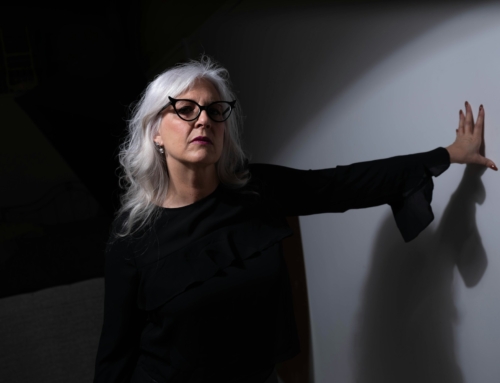Obsessive-compulsive disorder (OCD) is a common, chronic, and long-lasting disorder in which a person has seemingly uncontrollable, recurring thoughts (“obsessions”), and/or behaviors (“compulsions”) that they feel the urge to repeat over and over. It is a complex, anxiety-related disorder that Christian counselors can help patients with, using a Biblical foundation and a dependency on God to overcome something that can seem very difficult to treat.
 Principles about OCD.
Principles about OCD.
To learn more about OCD anxiety and its alleviation, consider the seven principles below:
Knowledge is Power.
Many people suffering from OCD anxiety are unaware of what is happening to them, so education forms the cornerstone for treatment. To be diagnosed with OCD, a sufferer needs to experience recurrent and persistent thoughts, urges, or images, particularly those that are considered unwanted or intrusive. In response to these, they feel driven to perform repetitive behaviors or mental acts; which are called compulsions.
In terms of what causes OCD, Mike Emlet helps identify potential brain-related and heart influences on OCD in his mini-book Freedom for the Obsessive-Compulsive. The physiological causes include genetics, illnesses like influenza and strep throat, over-activity in the basal ganglia and frontal regions in the brain, and altered neurochemicals. A medical exam is therefore an important part of an OCD diagnosis.
A body-soul problem.
Christian counselors will differ in their treatment of OCD anxiety to secular counselors by viewing the disorder as a complete body-soul problem. There are certainly genetic and medical factors to consider, and nurture (formative experiences in childhood and beyond) plays an important role. It is, however, also important to remember that we are sinners with desires, beliefs, and objects of worship that do not always glorify the Creator.
These are heart problems that need to be addressed, as it is only through the redemption and true freedom brought by Jesus Christ that real change is possible. Any other treatment or therapy that does not consider the soul cannot break the chains of disorders that involve the whole person.
This, of course, does not mean OCD is always or even often brought on by personal sin. It simply means it is important to evaluate the mind, body, heart, and soul when considering what may be contributing to a mental health condition like OCD.
While cognitive behavioral therapy and medication will form a significant part of counseling for OCD anxiety, the most effective counseling goes beyond this to help clients focus on and be captivated by the immense love, mercy, wisdom, and grace of God.
 The Bible has answers.
The Bible has answers.
Being captivated by the person of Jesus Christ means spending deep time in God’s Word, mining it for the treasures and answers that it contains. A Christian counselor helping someone with OCD will identify key passages in Scripture that can be reflected and meditated on.
Consider, for example, John 5:1–17, where Jesus heals a man who had been paralyzed for 38 years, at the pool of Bethesda. This passage could be used to lead clients to see God’s glory and to deepen their trust in Him, by pointing out parallels and applications.
The man had been stuck in his affliction for many years; just like a person struggling with OCD, who might feel equally hopeless, ashamed, and paralyzed. In the passage, Jesus did not overlook the man in his pain but moved towards him. He then asked a provocative question that went to the heart of the matter by asking the man if he wanted to be healed.
Overcoming a disorder like OCD will not be a quick fix, but God’s Word demonstrates His tenderness, love, and presence even in the midst of our suffering.
Slow down and evaluate.
A proactive strategy to help with OCD that counselors will employ includes taking the time to simply pause and note what is going on in the moment when an OCD episode takes place. The person struggling can be asked to write down responses to questions like:
- What was the trigger for anxious thoughts?
- What intrusive thoughts flooded your mind?
- What did you believe in the moment?
- What did you feel physically and emotionally?
- How did you act on these feelings?
- What was the result?
This is a helpful process as it slows things down and gives an opportunity to look more carefully at racing thoughts. It also takes some self-control and personal empowerment to go back and reflect, rather than just moving on. It allows for a glimpse at some more subjectivity and is a foundation for starting to discern truth from lies.
Proactively search Scripture.
Christian counseling seeks to encourage spiritual maturity and sanctification through the healing process. This step is about actively participating in one’s recovery through truly engaging with Scripture and applying it so that one’s mind is renewed. Counselors can use various passages and ask the following questions:
- What does God see?
- What does God say?
- What does God offer?
- What does God command?
 While it may be a long journey towards recovery, even small steps toward healing allow us to begin to see God at work intimately in one’s life. These glimpses help strengthen us in battles, even those that feel as big as OCD, where victory truly can be found. Resisting the impulses of the flesh and trusting in Christ to set us free is possible.
While it may be a long journey towards recovery, even small steps toward healing allow us to begin to see God at work intimately in one’s life. These glimpses help strengthen us in battles, even those that feel as big as OCD, where victory truly can be found. Resisting the impulses of the flesh and trusting in Christ to set us free is possible.
Strategic focus areas.
This next approach to helping those struggling be liberated from the crushing burden of OCD anxiety is consistent with secular treatment but also includes the power of the Gospel in breaking the chains. People battling OCD often struggle in more than one area, and trying to tackle this all at once can seem overwhelming.
If, for example, a person struggles with a fear of germs at work, at home, and at church, it is helpful to take the least difficult place and work on that to start. By seeing a little bit of progress in one strategic focus area, a counselee will feel encouraged, and can then move on to the next battleground. The result of progress in one area is very often that it bleeds over naturally into other areas.
In the moment.
Exposure response prevention (ERP) trains OCD sufferers to face an anxiety-causing trigger and then practice delaying or preventing the compulsion that follows. This approach can feel mentally taxing, but it is a crucial strategy in challenging OCD behaviors.
These steps are important and helpful. In addition, it is crucial that those struggling remember the ultimate goal is to learn to cry out to Jesus in the moment of suffering and trust that He is there and cares, confident that He will bring the satisfaction that is being sought.
This principle is about delaying the compulsive act, by reminding one that the grace of God trains us to say no to ungodly, unhelpful thoughts and convictions that do not actually offer any long-term relief. It is then about praying at the moment, perhaps using a memorized Scripture.
It is certainly not about replacing the ritual with a new one (a prayer), but about establishing a true connection with God and redirecting the mind from a fruitless compulsion to a place of truth and comfort.
It can seem counter-cultural to suggest that a mental health issue like OCD anxiety can be overcome by applying God’s Word. But Christianity is counter-cultural, and our instinct is to solve problems on our own, rather than seeing ourselves as frail beings dependent on a great God.
Christian counselors have seen many testimonies of how faith in action delivers real results. Incredibly, the greatest reward that the client experiences is not just an ability to put a disorder like OCD behind them, but the joy of knowing God better, and gaining a glimpse into His power and His might.
Get started on your journey to healing and a deeper relationship with God. Contact our reception team today to schedule a counseling appointment.
“Jeremiah 15”, Courtesy of Rod Long, Unsplash.com, CC0 License; “Grief and Shame”, Courtesy of Anthony Tran, Unsplash.com, CC0 License; “OCD”, Courtesy of Pawel Czernwinski, Unsplash.com, CC0 License; “In Awe of Nature”, Courtesy of Jason Hogan, Unsplash.com, CC0 License











